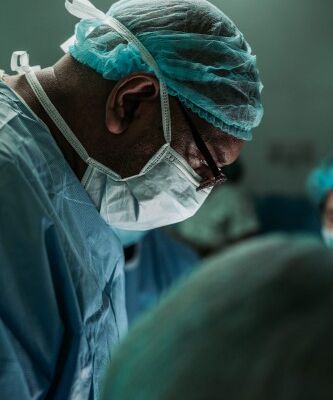It is commonly agreed that the NHS is one of the institutions that the country should be most proud of. But it is also very obvious that it is going through a bit of a crisis at the moment. It is likely that everybody in the UK has used the NHS at some point in their lifetime – and if they have not, they will know someone that has.
The fact that we all have so much affection for the NHS means that the idea of claiming against it is rather galling. However, it is the case that although most of the time things run smoothly and as expected, errors do happen. Everybody has the right to fair treatment and has the right to question their treatment. Remember that you pay for the NHS through your taxes and there is a certain level of care that you are entitled to.
When it comes to making a medical negligence claim, however, it is important to remember that good can come from it. Making a claim against them can make the NHS aware of issues or potential issues, enabling them to make the changes that are needed.
This means that drawing attention to something that has happened to you can have a positive effect on future patients.
How the NHS responds following a medical negligence claim
There are often risks involved with medical procedures of all kinds and differing consequences. If you are having a procedure, you will often be asked to sign a consent form, ensuring that you have been made aware of the potential risks of the procedure that is being carried out. Medical professionals have a duty of care toward you, and if they fail in this, it is known as medical negligence.
In order for you to make a medical negligence claim, three factors need to be proved:
- That there was a duty of care
- That there was a breach of this duty of care
- That this breach of the duty of care caused harm to the person that was under their care
If you believe that you have a medical negligence case for yourself or on behalf of someone else, the procedure involves writing a ‘Letter of Claim’ to the NHS. In this letter, your solicitor will set out all of the details of the claim and then present it to the NHS. The NHS’s legal representatives will then look at the claim and either offer a settlement or dispute it and this case could go to court.
How the medical claim can help future patients
Making a claim for medical negligence is not just about getting compensation for injuries and money that you have lost as a result of the injury that you have suffered. It can also be used to draw attention to issues or potential issues that could harm future patients.
By making the NHS aware of people or practices that can cause harm, they can then arrange for extra training, changes in procedures or processes, or extra checks and balances to be put in place to reduce the chance of the same thing happening to someone else.
In some of the most serious cases, a claim can be made against a medical practitioner, which could result in disciplinary action or them losing their job.
Medical claims may prevent similar incidents
According to NHS Resolution – the body that is in place to deal with medical negligence claims for the NHS – one of their main functions is to prevent similar incidents from happening in the future. This is done by examining the claims that are made and making changes to ensure that the practices are not repeated.
Medical claims with Waldrons
Although you might feel bad about making a claim against the NHS, it is important to remember that you have the right to expect a good service. Making the NHS aware of failures in your treatment, and, of course, compensating you for the losses that you have suffered is also essential.
If you feel that you have a medical negligence case, you should get in touch with our expert team here at Waldrons. Our professional team has the skills needed to thoroughly investigate your case, and put together your claim letter to the NHS. They will then also be able to take your case through to a settlement or conclusion.
We work on a no-win, no-fee basis, meaning that you will only pay us if you are successful with your claim.
Contact Waldrons solicitors
Here at Waldrons our team of expert solicitors are on hand to speak to you, get in touch today!
More information Medical Negligence
Last reviewed on 11/07/23 by Joseph Norton who is a Director and Head of Compensation
